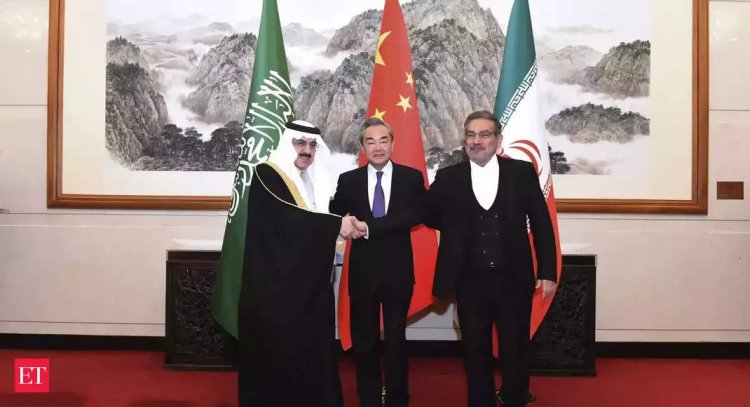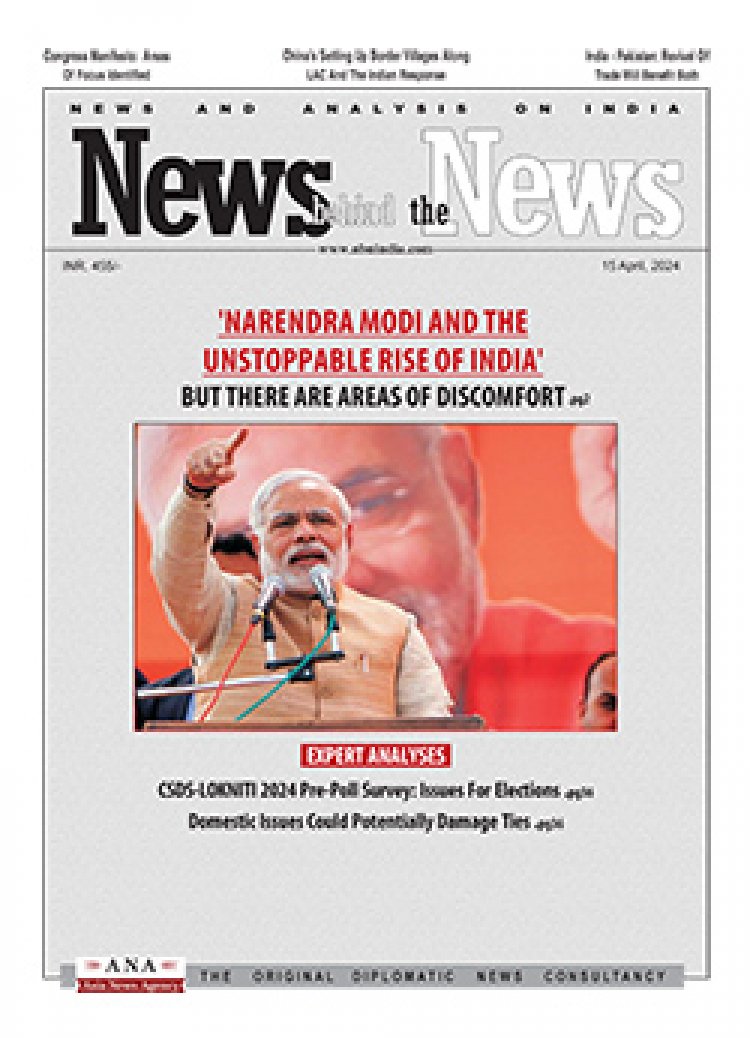India Stumped by the Saudi, Iran Deal
STORIES, ANALYSES, EXPERT VIEWS

One aspect of the Saudi-Iranian deal that has implications for India’s immediate external environment, according to MK Bhadrakumar (Former Ambassador) “is that the strategic situation in the Persian Gulf region, India’s extended neighbourhood, has dramatically changed. This can only be seen as the culmination of a series of repositioning on the part of the regional states that have been underway in the regional politics, as they increasingly took to diversifying their foreign policies away from the preponderant dependency on the West historically, and steadily and unmistakably began asserting their strategic autonomy with a newfound self-assuredness — be it Saudi Arabia, the UAE, Egypt or Turkey.”
The process, “didn’t register in the Indian consciousness…. Simply put, we went into a deep strategic slumber even as West Asia transformed.
The euphoria over Abraham Accord; the bizarre grouping known as I2U2 (touted as West Asian Quad); the unwarranted uplift given to Israel, the sheer naiveté in our faith that the US is the indispensable power in West Asia’s geopolitics, according to Bhadrakumar are “deeply flawed assumptions..”
We have been busy building Hindu temples in the Emirates, notes Bhadrakumar “while the Sheikhs were heading for China in search of technology….As an aspiring global power, India needs to come to terms with this geopolitical reality….”
India, China rivalry in the Gulf
Oil and gas have remained at the core of global security issues over this past decade. China and India compete in the Gulf not only for oil but also on regional security. Added is the fact that West Asia has become dependent on Asian rather than Western markets. This has the potential to increase the buyers’ clout provided that the Asian consumers can come together.
While access to West Asian energy constitutes an important geo-economic dimension to China’s growing stakes in West Asia, there is also the geo-political aspect defined by the declining influence of the United States in the region.
India’s high stakes in the Gulf
Sanjaya Baru (political commentator and policy analyst) examines what should India do? India has high stakes in the Gulf. Imports constitute 85 to 90 per cent of India’s oil consumption. Over 60 per cent of oil imports come from the Persian Gulf region. While the Gulf’s share of oil imports and inward dollar remittances into India has been declining, it still remains substantial. Millions of Indians still live and work in the region. Clearly, the Gulf is of both geo-economic and geopolitical significance for India.
Questioning the I2U2 alliance: focus should be in Southeast Asia and West Asia
Through its membership of what has been called the West Asian Quad – I2U2 -- comprising the United States, India, Israel and the United Arab Emirates -- it appeared as if India was enhancing its clout in the region. But, Baru states “it remains to be seen if this was indeed a well-advised move. India has historically had a presence both in Southeast Asia and West Asia.”
Baru questions if this has “strengthened or diluted its influence by joining hands with the US and Australia in one Quad and with the US and Israel in the other?
“Joining hands with Japan in the east and with UAE in the west is quite understandable, given the historical and contemporaneous links with both nations. However, it is not clear if the wider Asian region to India’s east and west appreciate India joining hands with the other two, in each instance, or whether India would be better off pursuing an independent regional policy in its wider Asian neighbourhood.”
India, argues Baru “would be well advised to pay closer attention to China’s strategy of establishing bilateral links with countries in its neighbourhood, not riding piggyback on others. Both in Southeast Asia and in West Asia, India’s neighbours would like to see India stand on its own feet, rather than with the aid of diplomatic crutches provided by the Western powers.”
In the Middle East, China seeks peace, but in the Himalayas it has been behaving like a bully
India knows, writes Narain Batra (affiliated with the Diplomacy and International Program in the Graduate College at Norwich University, USA. He is the author of several books including the most recent, India In A New Key: Nehru To Modi) “that an agreement with China does not mean anything if it does not suit China’s interests. As a revanchist power questioning established historical facts in order to advance its claims, China has been trying to rewrite history. First, it lays a cartographic claim based upon its own interpretation of history, and afterward, it nibbles small territories, nimbly and incrementally, establishing its presence without raising any alarm; and when its physical position becomes strong and irreversible, then it claims that this is the reality, and the present actualities should be accepted as fait accompli.
“China plays a long-term game. Its slow and gradual manoeuvres leave its opponents puzzled as to what kind of response would be proportionately adequate. Whether it is nipping territory in the Himalayas, hill by hill, valley by valley, or it is the reclamation of reefs and atolls in the South China Sea, China’s international conduct has been destabilizing…….”
So, “in the Middle East, China seeks peace, but in the Himalayas and the South China Sea, China has been behaving like a bully.”
















